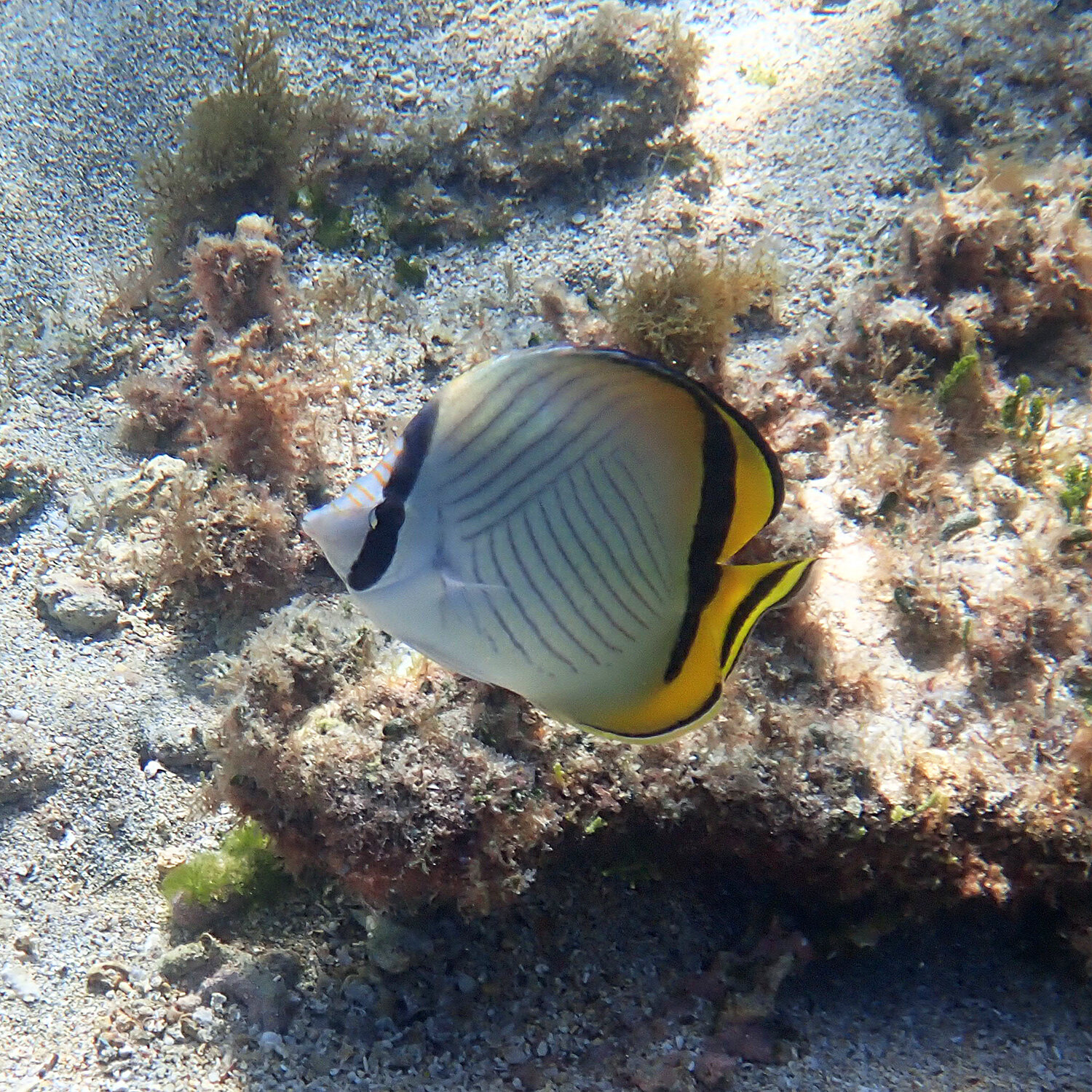More changeable weather this week with poor visibility in the bays curtailing some of my observations, but the full moon last night brought us some beautiful, settled weather, right on cue, which meant I was able to get out into Slaughter Bay for the first time in ages.
What greeted me wasn’t too pretty either. There is one area of coral I have been watching since the marine researchers from the Sydney Institute of Marine Science were here in March and alerted me to the onset of white syndrome, or white band disease. I have kept an eye on it since then and watched as the colony has gradually died. This week it was virtually unrecognisable, covered by a thick growth of algae. You can see the progression of the disease, below. Heartbreaking.
A sure sign that things are warming up in the water was the sighting of a couple of Lady Musgrave blennies, Cirripectes chelomatus, out and about for the first time in yonks. I have seen them over winter, but it has been incredibly fleeting as they dashed for cover. This week my regular guy was happy to sit and be photographed. No sign of the chestnut eyelash blennies, Cirripectes castaneus, yet, though.
From now on, I expect to see these cheeky guys more and more. They tend to sit up on a prominent piece of coral, flutter up and then dive quickly back down and hide. And they will start to change colour as the season progresses to a beautiful greeny yellow with their blue tails. The first two images are from today. The others are to show you what I expect them to look like very soon.
Another fun photograph was of (I think*) a redcap triplefin, Enneapterygius rufopileus. These guys are a master of disguise. Probably less than 1 cm in length, they can be really hard to spot. Blink and they’re gone. The other image is of (I think*) a Doug’s eviota, Eviota hoesei. Similar in size to the redcap triplefin, and looking like a diminutive jewel, he has a black spot near his tail.
To round off the week out on a swim, I thought I’d post one of my favourite butterflyfish, the vagabond butterflyfish, Chaetodon vagabundus. This is one of a pair that were happily flitting around in Slaughter Bay yesterday.
Vagabond butterflyfish - Chaetodon vagabundus
When I first started observing and photographing, I had no idea that there were so many variations on yellow, black and white among the butterflyfish. If you hop over to my reef fish page and scroll down to the Butterflyfish heading you will see what I mean.
*I've tried to get a definitive ID on these tiny critters on iNaturalist.org, but so far I've been unsuccessful.









